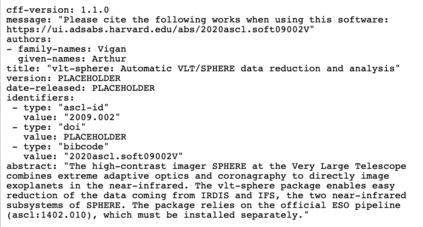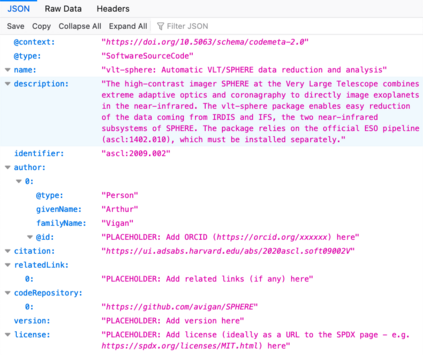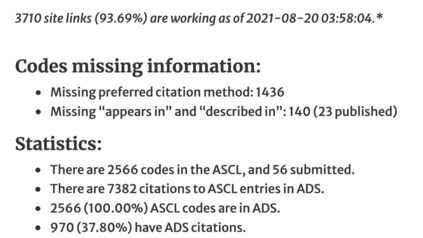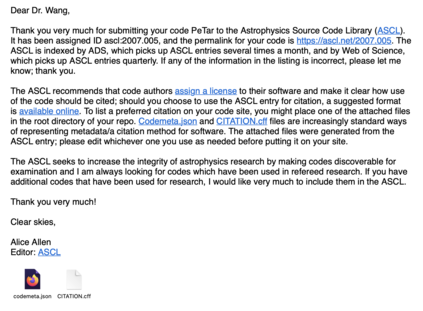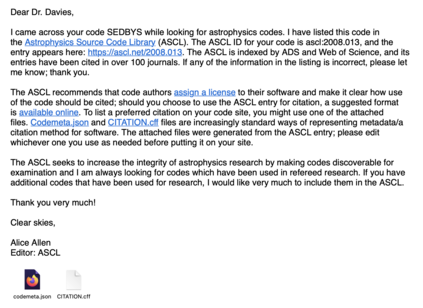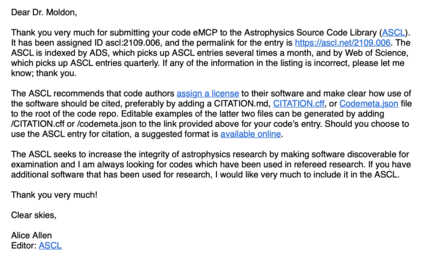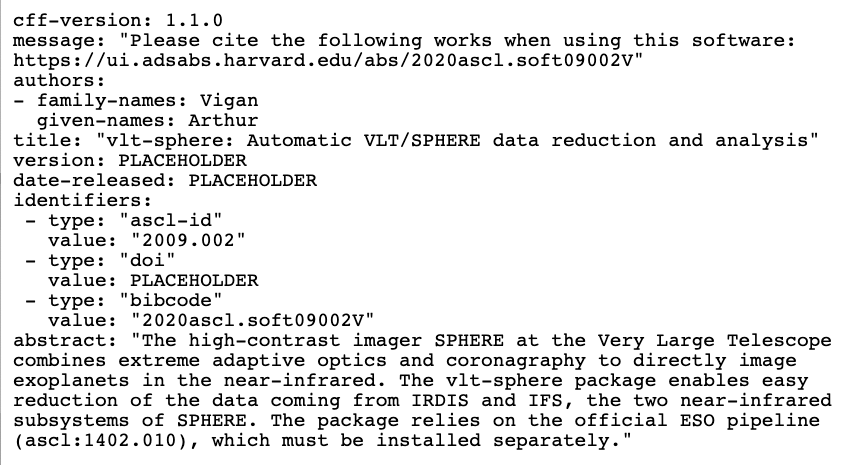Software citation has accelerated in astrophysics in the past decade, resulting in the field now having multiple trackable ways to cite computational methods. Yet most software authors do not specify how they would like their code to be cited, while others specify a citation method that is not easily tracked (or tracked at all) by most indexers. Two metadata file formats, codemeta.json and CITATION.cff, developed in 2016 and 2017 respectively, are useful for specifying how software should be cited. In 2020, the Astrophysics Source Code Library (ASCL, ascl.net) undertook a year-long effort to generate and send these software metadata files, specific to each computational method, to code authors for editing and inclusion on their code sites. We wanted to answer the question, "Would sending these files to software authors increase adoption of one, the other, or both of these metadata files?" The answer in this case was no. Furthermore, only 41% of the 135 code sites examined for use of these files had citation information in any form available. The lack of such information creates an obstacle for article authors to provide credit to software creators, thus hindering citation of and recognition for computational contributions to research and the scientists who develop and maintain software.
翻译:过去十年来,在天体物理学方面,软件的引用速度加快了,导致实地现在有多种可追踪的方法来引用计算方法。然而,大多数软件作者没有具体说明他们希望如何引用代码,而其他作者则具体规定了大多数索引员不轻易跟踪(或完全跟踪)的引用方法。两个元数据文档格式(commeta.json和CITATION.cff)分别于2016年和2017年开发,可用于具体说明如何引用软件。2020年,天体物理学源代码库(ASCL,ascl.net)进行了长达一年的努力,制作和发送这些软件元数据文档,具体针对每种计算方法,用于编码作者编辑和输入代码网站。我们想回答一个问题,即“将这些文档发送给软件作者会增加对一个、另一个或两个元数据文档的采纳率?”本案的答复是否定的。此外,在为使用这些文档而调查的135个代码库中,只有41%以任何形式提供了引用信息。缺乏这种信息,给文章作者提供了一种障碍,使他们无法向软件的作者提供信用,以进行科学研究,从而无法对软件的推介思。

